He emphasized the need for partnership in the education sector, saying, “No government can cater for the formal education of its citizens alone.”
“Formal education is a product that can be given by any number of providers, because education, especially in a non-totalitarian State, is an enterprise for the common good,” Bishop Badejo explained.
 Credit: Catholic Diocese of Oyo
Credit: Catholic Diocese of Oyo
He shared the example of his Episcopal See that, he said, “currently runs 26 primary and secondary schools and 4 other skill acquisition and empowerment centers”, providing “qualitative education and moral formation for the youths.”
“Many pupils and students of all religious backgrounds, enjoy support and scholarship from the Church without which they cannot afford holistic education,” he further said, adding, “A similar number of such educational institutions under the Archdiocese of Ibadan in the same Oyo State offer similar services.”
(Story continues below)
 Credit: Catholic Diocese of Oyo
Credit: Catholic Diocese of Oyo
“Most of these institutions, located in the most remote parts of the State, cater for thousands of youths who are citizens of Nigeria. Obviously, the Church would do more if she could receive support from the government to help more people in need,” the 62-year-old Catholic Bishop, who started his Episcopal Ministry in October 2007 as Coadjutor Bishop of Oyo Diocese further said.
In his considered view, it is “the prerogative of government is to treat as partners, individuals and organizations which venture into education and to support them while setting the standards and rules to be followed.”
 Credit: Catholic Diocese of Oyo
Credit: Catholic Diocese of Oyo
“Given these tough economic times we call on the Oyo State government to provide financial support for educational institutions run by the Church and other credible private organizations since the beneficiaries of those services are also citizens of Nigeria and Oyo State, whose parents also pay taxes and work to develop the State,” Bishop Badejo said, and recalled the “grants-in-aid” scheme that was in place “before the take-over of schools in the 1970s.”
In his April 23 address, the Bishop of Oyo Diocese also acknowledged with appreciation the Oyo State government’s agricultural policies, which he said have encouraged the youths and women to participate in the “agricultural value chain, and enhance food security in the State.”
 Credit: Catholic Diocese of Oyo
Credit: Catholic Diocese of Oyo
“We implore the government to further consider the employment of agricultural extension officers to ensure maximum functionality of these agencies,” he said referring to the Oyo State Agricultural Development Program (OYSADEP) that was upgraded to Oyo State Agribusiness Development Agency (OYSADA) to enhance agriculture.
Bishop Badejo pledged the Church’s support through her Justice, Development, and Peace Movement (JDPM), and urged the people of God in Oyo State to embrace agriculture.
 Credit: Catholic Diocese of Oyo
Credit: Catholic Diocese of Oyo
While he commended “the pronouncement of the State government to subsidize tractor services in farmers' cluster communities,” the Nigerian Catholic Church leader called upon “the government to subsidize the cost of farm inputs and implements so that farmers can have easier access to them.”
The government, Bishop Badejo said, should also “enforce its pronouncement against multiple taxation on agricultural produce during transportation from the farms to the urban markets in the State, as this essentially adds to the cost of farm produce in the markets.”
ACI Africa was founded in 2019. We provide free, up-to-the-minute news affecting the Catholic Church in Africa, giving particular emphasis to the words of the Holy Father and happenings of the Holy See, to any person with access to the internet. ACI Africa is proud to offer free access to its news items to Catholic dioceses, parishes, and websites, in order to increase awareness of the activities of the universal Church and to foster a sense of Catholic thought and culture in the life of every Catholic.
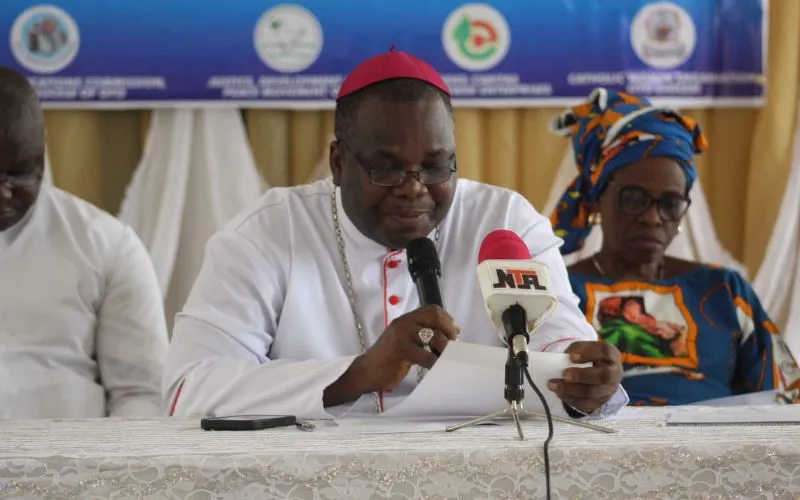 Credit: Catholic Diocese of Oyo
Credit: Catholic Diocese of Oyo


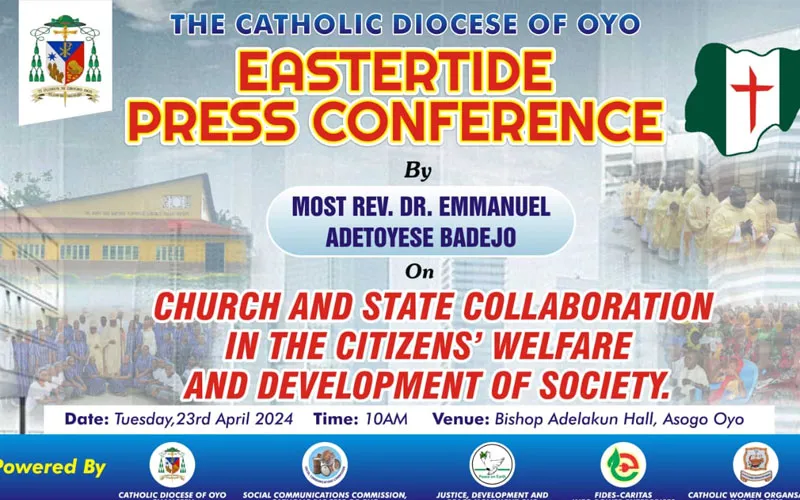
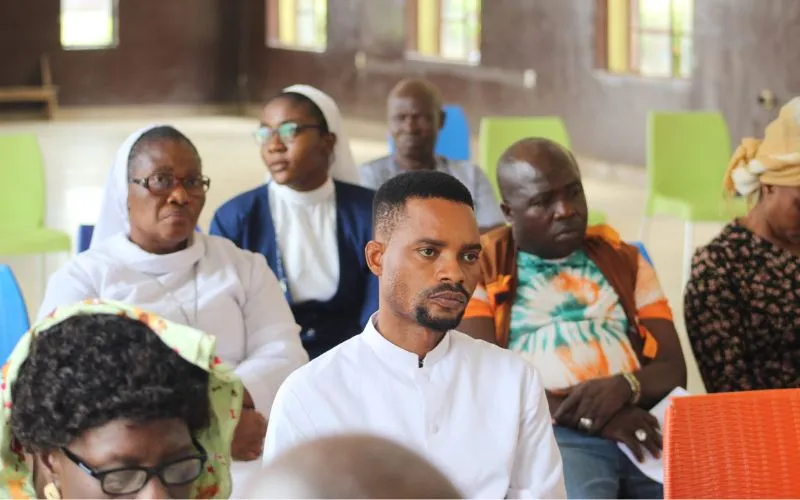 Credit: Catholic Diocese of Oyo
Credit: Catholic Diocese of Oyo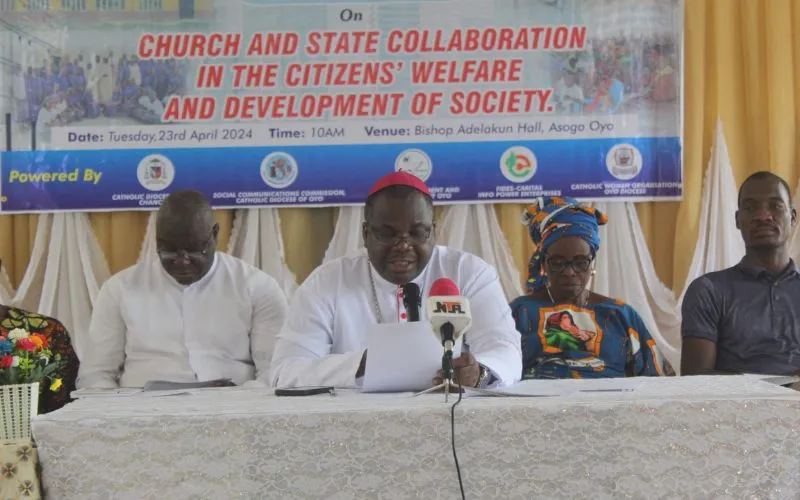 Credit: Catholic Diocese of Oyo
Credit: Catholic Diocese of Oyo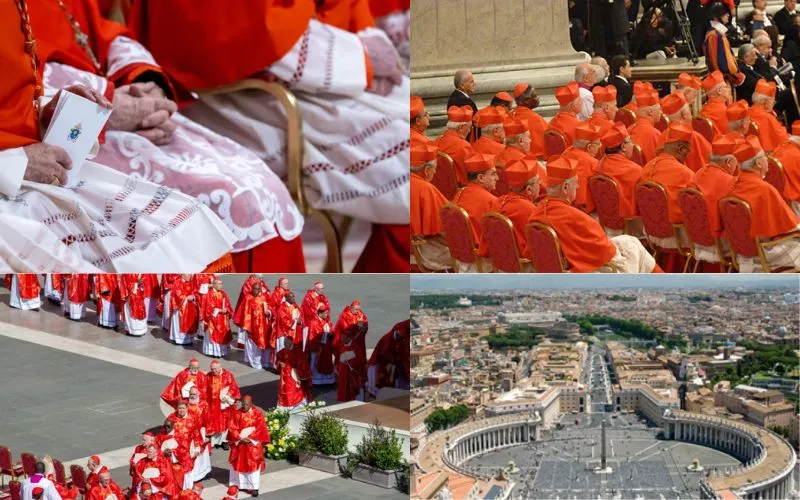
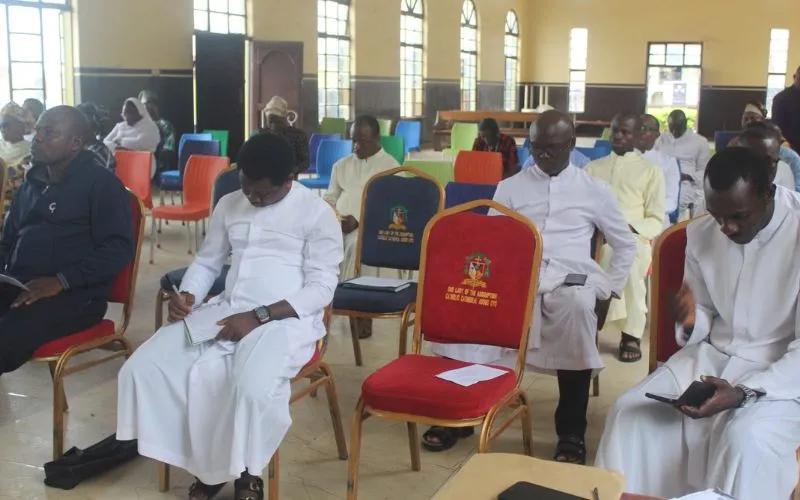 Credit: Catholic Diocese of Oyo
Credit: Catholic Diocese of Oyo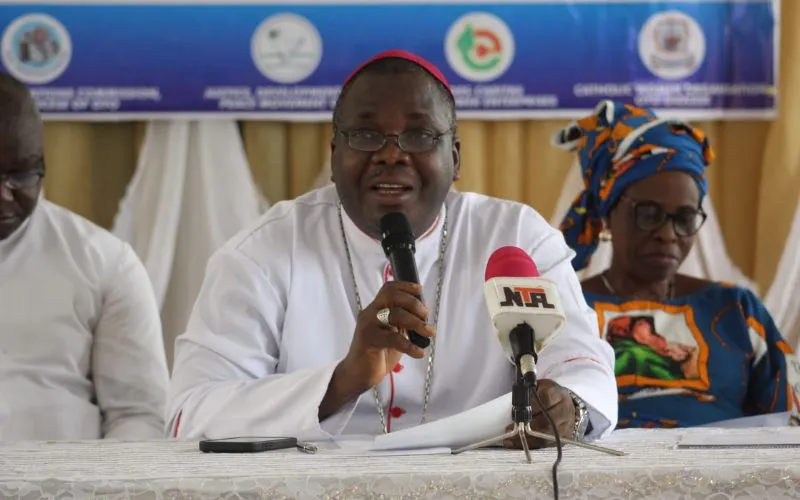 Credit: Catholic Diocese of Oyo
Credit: Catholic Diocese of Oyo Credit: Catholic Diocese of Oyo
Credit: Catholic Diocese of Oyo Credit: Catholic Diocese of Oyo
Credit: Catholic Diocese of Oyo Credit: Catholic Diocese of Oyo
Credit: Catholic Diocese of Oyo Credit: Catholic Diocese of Oyo
Credit: Catholic Diocese of Oyo Credit: Catholic Diocese of Oyo
Credit: Catholic Diocese of Oyo


